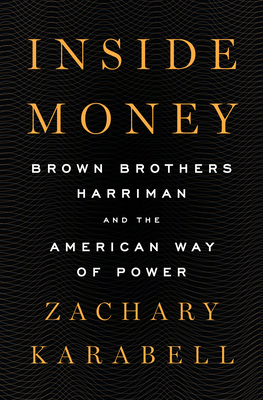Expedite your nonfiction book discovery process with Readara interviews, summaries and recommendations, Broaden your knowledge and gain insights from leading experts and scholars
In-depth, hour-long interviews with notable nonfiction authors, Gain new perspectives and ideas from the writer’s expertise and research, Valuable resource for readers and researchers
Optimize your book discovery process, Four-to eight-page summaries prepared by subject matter experts, Quickly review the book’s central messages and range of content
Books are handpicked covering a wide range of important categories and topics, Selected authors are subject experts, field professionals, or distinguished academics
Our editorial team includes books offering insights, unique views and researched-narratives in categories, Trade shows and book fairs, Book signings and in person author talks,Webinars and online events
Connect with editors and designers,Discover PR & marketing services providers, Source printers and related service providers

Inside Money: Brown Brothers Harriman and the American Way of Power
Business & Economics > Corporate & Business History - General
- Penguin Press
- Hardcover
- 9781594206610
- -
- -
- Business & Economics > Corporate & Business History - General
- (Single Author) Asian American
- English
Readara.com
Book Description
Conspiracy theories have always swirled around Brown Brothers Harriman, and not without reason. Throughout the nineteenth century, when America was convulsed by a devastating financial panic essentially every twenty years, Brown Brothers quietly went from strength to strength, propping up the U.S. financial system at crucial moments and catalyzing successive booms, from the cotton trade and the steamship to the railroad, while largely managing to avoid the unwelcome attention that plagued some of its competitors. By the turn of the twentieth century, Brown Brothers was unquestionably at the heart of what was meant by an American Establishment. As America's reach extended beyond its shores, Brown Brothers worked hand in glove with the State Department, notably in Nicaragua in the early twentieth century, where the firm essentially took over the country's economy. To the Brown family, the virtue of their dealings was a given; their form of muscular Protestantism, forged on the playing fields of Groton and Yale, was the acme of civilization, and it was their duty to import that civilization to the world. When, during the Great Depression, Brown Brothers ensured their strength by merging with Averell Harriman's investment bank to form Brown Brothers Harriman, the die was cast for the role the firm would play on the global stage during World War II and thereafter.
In Inside Money, acclaimed historian, commentator, and former financial executive Zachary Karabell offers the first full and frank look inside this institution against the backdrop of American history. Blessed with complete access to the company's archives, as well as a thrilling understanding of the larger forces at play, Karabell has created an X-ray of American power--financial, political, cultural--as it has evolved from the early 1800s to the present. Today, unlike many of its competitors, Brown Brothers Harriman remains a private partnership and a beacon of sustainable capitalism, having forgone the heady speculative upsides of the past thirty years but also having avoided any role in the devastating downsides. The firm is no longer in the command capsule of the American economy, but, arguably, that is to its credit. If its partners cleaved to any one adage over the generations, it is that a relentless pursuit of more can destroy more than it creates.
Author Bio
Zachary Karabell is an author and columnist, the founder of the Progress Network at New America, and president of River Twice Research and River Twice Capital. Previously, he was Head of Global Strategies at Envestnet, a publicly traded financial services firm. Prior to that, he was President of Fred Alger & Company. In addition, he ran the River Twice Fund from 2011-2013, an alternative fund that focused on sustainability.
Educated at Columbia, Oxford and Harvard, where he received his Ph.D., Karabell has written widely on history, economics and international relations. His most recent book was The Leading Indicators: A Short History of the Numbers That Rule Our World, and his next book, Inside Money: Brown Brothers Harriman and the American Way of Power will be published by Penguin Press in early 2021.
He is the author of eleven previous books, including The Last Campaign: How Harry Truman Won the 1948 Election (which won the Chicago Tribune Heartland Award for best non-fiction book of the year in 2000); Superfusion: How China and America Became One Economy and Why the World’s Prosperity Depends On It (Simon & Schuster, 2009); and Sustainable Excellence: The Future of Business in the 21st Century, co-authored with Aron Cramer (Rodale 2010). He also sits on the board of New America and PEN America. In 2003, the World Economic Forum designated him a "Global Leader for Tomorrow."
As a commentator, Karabell is a Contributing Editor for Wired and for Politico, and the host of the podcast “What Could Go Right?” Previously he wrote “The Edgy Optimist” column for Slate, Reuters, and The Atlantic. He is a LinkedIn Influencer, and a commentator on CNBC, Fox Business and MSNBC.
He also contributes to such publications as The Washington Post, The Guardian, The Daily Beast, The Atlantic, Time Magazine, The Wall Street Journal, The Los Angeles Times, The New York Times, and Foreign Affairs.
Source: zacharykarabell.com
Videos
No Videos
Community reviews
No Community reviews

